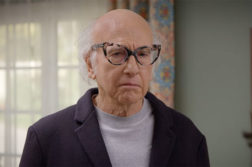Last night I popped over to Melbourne University to see ABC boss Mark Scott deliver the AN Smith Lecture in Journalism. It was your usual Melbourne literary crowd, sprinkled with a few journos and even a couple of ABC Board members.
Scott’s lecture was rather pompously entitled "The Fall of Rome" (an apparent invitation to mix his historical metaphors) and described the now well known decline of the great media empires of the 19th and 20th centuries.
"We will surely look back on the 19th and 20th centuries and say that media was a great business to be in," Scott proclaimed. "Audiences hungry for news and entertainment. Powerful media organisations with deep pockets fighting to keep competitors out and profits in. The names are legendary: the Hearsts and the Grahams in the US. Beaverbrook and Rothermere in Britain. The Murdochs and the Packers here. Even the fictional names were legendary: Citizen Kane."
But, Scott continued, for those living under rocks for the past decade, times have changed. "The media Caesars of today seem largely out of solutions — and instead challenge reality by seeking to deny a revolution that has already taken place by attempting to use a power that no longer exists."
The speech largely proceeded in this vein as Scott took great pains to describe the bleeding obvious. Newspapers are struggling. Classifieds are migrating online. Young people are deserting old media. Twitter and Facebook are cool.
"When you look back on it, some fundamental weaknesses in the traditional publishing and broadcasting model were evident long before the internet revolution." Well, der.
While Scott’s lecture may have seemed old hat to anyone who has actually been following the debate over the last decade, he nonetheless delivered some useful points. It’s true that media policy in this country has been dominated by vested interests: "not much more than a tawdry chaos of compromises designed to appease the moguls," as Scott phrased it. It’s also true that journalism can no longer rely on the succor of rich families to sustain itself in the face of imploding revenues.
And it’s worth pointing out that for many in the audience this tissue of old news was a revelation. At the end of the speech, I turned to the person beside me, a lecturer from Melbourne University’s journalism school, and asked her what she thought of the speech. She replied that Scott was perhaps the first senior media executive in Australia to articulate the current situation so straightforwardly. In the foyer, Sophie Cunningham from Meanjin, agreed.
If this is really the case, then old media is in bigger trouble than even Scott claims. Because the second half of Scott’s speech contained very little in the way of new strategies or announcements. "Continuous news online"? Internet television? More blogs? Twitter? It’s not rocket science. It’s merely what everyone else — including old media outlets — is doing.
Instead we got a lot of new media and new economy nostrums. "All the rules have changed," he claimed, and "transformational thinking and only transformational thinking will bring a true critical analysis." Uh huh. "At the the ABC we are thinking of a world of 10,000 channels delivered to your TV set." Good. "Sit in meetings with people half your age and listen." Somehow, I doubt how thoroughly he has tested that one.
According to Scott, "Twitter might be where our future audiences and communities may choose to spend their media time, and we need to be there with our audiences." 140 characters of bravo!
As I watched Scott’s speech and the ensuing questions, I began to get a sense of how clueless many media executives really are. I’m fairly certain Scott knows more about this stuff than, for example, Roger Corbett does. In fact, Scott pointed this out later in his speech, arguing that old thinking and internal barriers to reform are the biggest problems for media organisations. "We have seen the enemy, and it is us."
If Scott is among the savviest — and he may well be — then the path ahead for big media organisations in this country will be rocky indeed.
In the land of the blind, the man with a print-out of a Clay Shirky blog is king.
Donate To New Matilda
New Matilda is a small, independent media outlet. We survive through reader contributions, and never losing a lawsuit. If you got something from this article, giving something back helps us to continue speaking truth to power. Every little bit counts.



